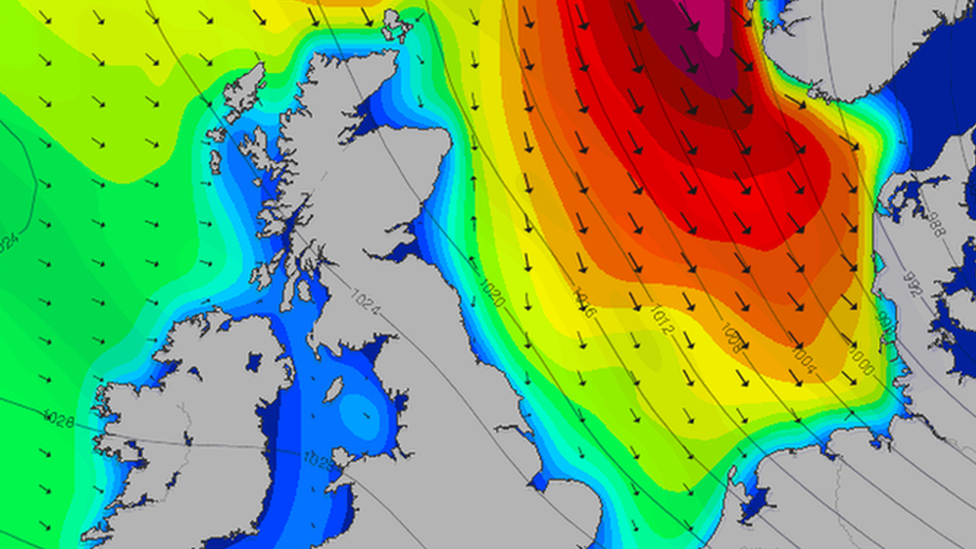Power restored as 'weather bomb' storm subsides
- Published
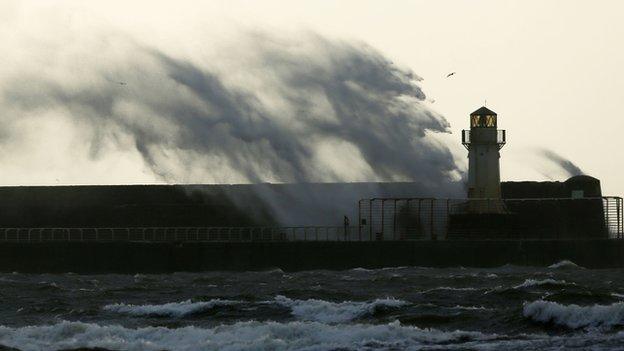
Ardrossan on the Ayrshire coast took a battering
Power has been restored to the vast majority of the 31,000 homes that had their supply cut as Scotland was hit by a storm dubbed the "weather bomb".
Energy firm SSE said its engineers had reconnected 28,000 homes by 16:30 on Wednesday with most of the others reconnected overnight.
About 330 properties remain without power and some Cal Mac ferry services have been cancelled, external.
Snow, ice and flooding is affecting a number of roads across the country.
Snow gates are closed on the A93 between Braemar and Glenshee and also on the A939 between Tomintoul and Cock Bridge while drivers have been reporting "challenging" conditions on the M8 and M74.
Morvern Smith from SSE told BBC Radio's Good Morning Scotland programme: "We apologise to everybody that still has not got their power but we are doing everything possible to get them reconnected."
Much of western and northern Scotland was battered by wind and rain on Wednesday.
A wind speed of 144mph was recorded on the remote St Kilda islands, with gusts in excess of 80mph elsewhere.
Met Office amber "be prepared" warnings for the west coast and the Highlands and Islands were downgraded to yellow at 18:00 on Wednesday.
The yellow "be aware" alerts of wind, which cover the whole of Scotland, will remain in place until 10:00.
An RNLI crew man who helped rescue a trawler, off the coast of Orkney, says the waves are "as bad as we've seen it"
Comhairle nan Eilean Siar (Western Isles Council) said it expected all its offices and public facilites to be open as normal on Thursday, along with many schools which were shut on Wednesday because of the storm.
The Western Isles, Shetland, Orkney and parts of Argyll and Lochaber were among the worst areas affected on Wednesday, as heavy rain, strong winds and lighting strikes left homes without power.
But disruption in much of the rest of the country was not as bad as had been feared.

Note: the Environment Agency and the Scottish Environment Protection Agency display their flood alert data differently. While the Environment Agency highlights individual rivers only, in Scotland the entire region is coloured to indicate the level of alert.

SSE said its 500 engineers and support staff were working late into the night to ensure power was restored to all of the remaining households.
But it said repairs were taking longer due to the nature and complexity of the damage to the network in some places, with engineers having to contend with rain, snow, and strong winds as well as damage caused by lightning strikes.
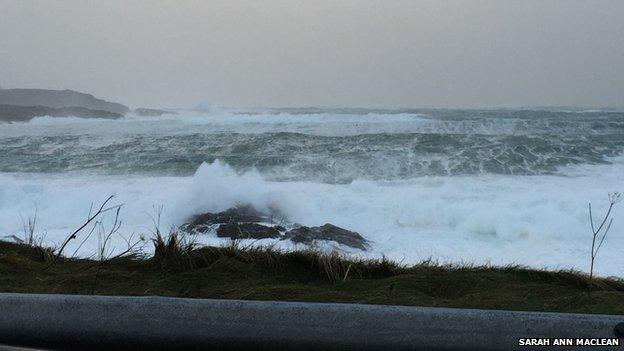
Barra felt the brunt of the 'weather bomb' storm
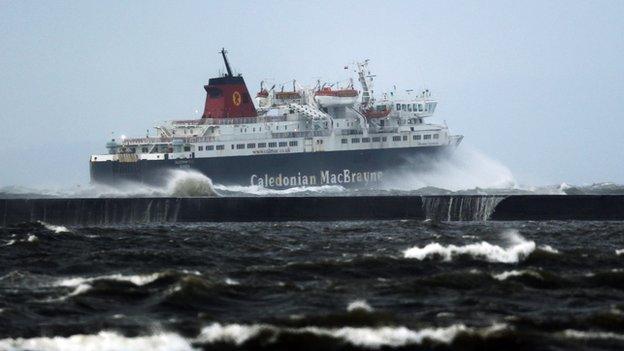
A Caledonian MacBrayne ferry braves the storm as it leaves Ardorssan harbour
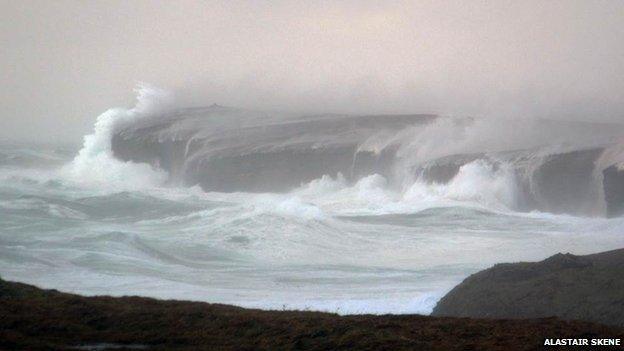
Storms north of Yesnaby in Orkney
The rapid cyclogenesis - known colloquially as a "weather bomb" - is a deep, low-pressure system which was moving slowly eastwards between Scotland and Iceland.
Waves heights of up to 40ft (12m) battered the west coast for much of the day, with the Centre for Environment, Fisheries and Aquaculture Science, external saying that one of its monitoring buoys had recorded a wave of 52ft (16m) at 15:00 - the highest it had ever seen.
A series of flood warnings and alerts were also issued by the Scottish Environment Protection Agency (Sepa), but there have been no reports of major flooding.
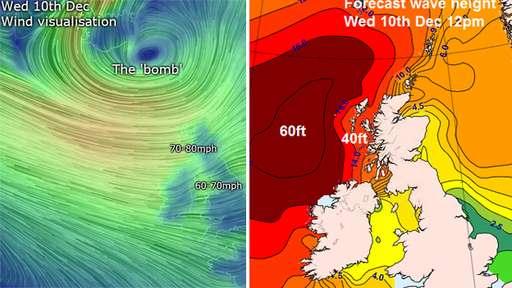
This BBC graphic shows the wind strengths and wave heights from the "weather bomb"
The strongest wind gusts recorded so far have been 144mph on St Kilda, with South Uist at 82mph, Tiree 81mph and Islay 77mph.
Gusts of up to 80mph at the top station of the Cairngorm Funicular Railway.
The wind speed at Machrihanish on the Kintyre peninsula was recorded at 73mph, Stornoway on Lewis 69mph, and Oban 63mph.
The highest low-level gust so far was 79mph at Benbecula.
All schools, nurseries, libraries and council sports facilities in the Western Isles are closed
Almost 50 schools and nurseries in the Highlands are also closed, affecting 2,312 children.
The Skye Bridge was closed but is currently open to cars only.
The Forth Road Bridge, Tay Road Bridge, Erskine Bridge and Dornoch Bridge are closed to high-sided vehicles and there are warnings on the Kessock Bridge.
Traffic Scotland said all trunk roads were open but warned drivers to take care.
Many ferries have been cancelled including Cairnryan to Belfast.
Cairnryan to Larne sailings are operating but with delays of about two hours.
The Ardrossan to Brodick crossings have been cancelled, as have Kennacraig to Islay, Barra to Eriskay, Stornoway to Ullapool and Oban to Craignure.
All sailings on the Largs-Cumbrae service have also been cancelled due to high winds.
Orkney Ferries said all sailings to Westray and Sanday were cancelled for the day.
Mallaig to Armadale ferries cancelled today and Thursday.
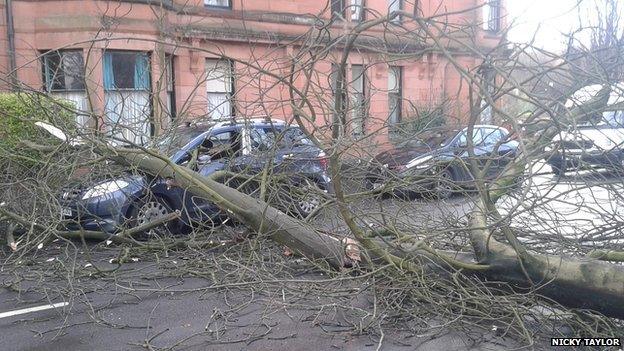
Trees were brought down in Mount Florida, Glasgow, as the storm hit
The National Trust for Scotland (NTS) said the wind speed at the top of the hill on Hirta, the largest of St Kilda's islands, reached 144mph - one of the highest ever recorded there.
St Kilda, which is in the care of the NTS, experiences gales on 75 days of the year, but conditions were said to be even tougher than normal.
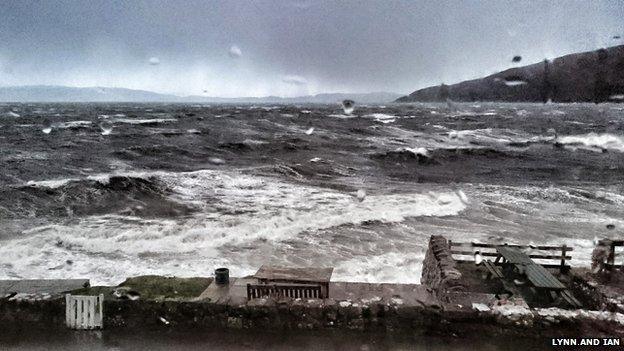
The shore at Applecross in Wester Ross took a battering
The Stromness lifeboat was called out after a Spanish fishing boat radioed in a Mayday after being hit by a large wave off the west coast of Orkney.
It is understood the wheelhouse windows of the O Genita trawler were smashed in the incident, with waves bigger than the height of the boat.
By 11:40, the trawler was escorted into Pierowall Bay on Westray, by the lifeboat.
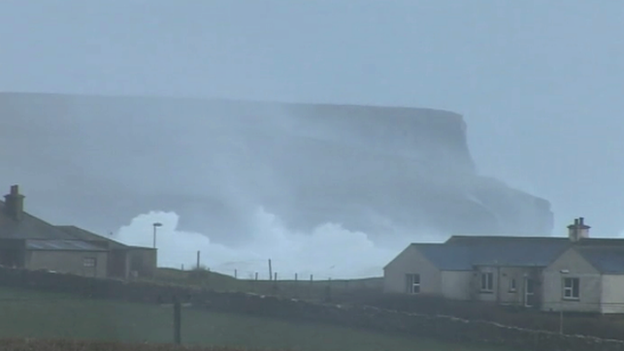
Towering waves crashed onto the cliffs in Orkney
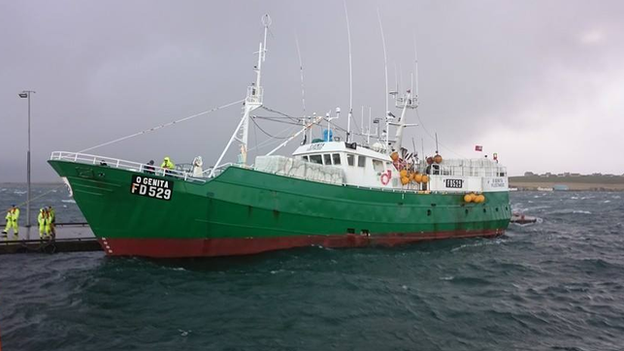
The O Genita trawler safely reaches Pierowall Bay after sending out a Mayday call
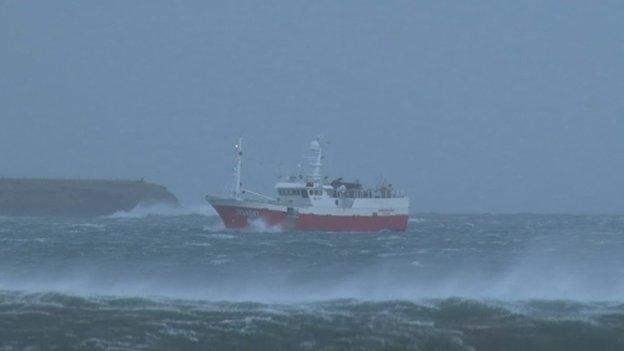
A boat battles through the waves off the Isle of Lewis
The Shetland coastguard helicopter, which had been at the scene of the Mayday call, was forced to land on Westray because of lightning in the area.
Network Rail withdrew services in the more exposed areas such as coastal routes and the far north line up towards Wick and Thurso.
A number of rail services were also withdrawn, with no trains running on the following lines:
Inverness-Kyle/Thurso/Wick
Ayr-Stranraer
Kilwinning-Ardrossan/Largs
Dumbarton Central-Helensburgh Central
Glasgow Queen St-Oban/Fort William/Mallaig (including the Caledonian Sleeper)
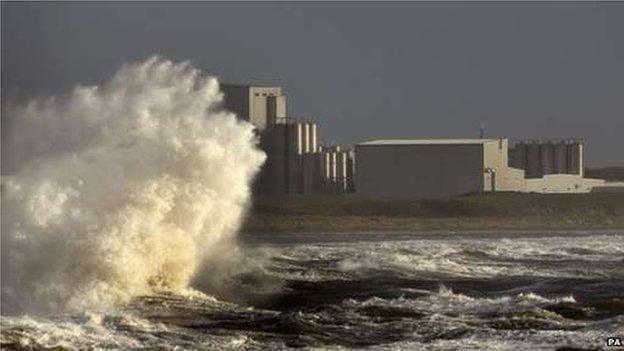
Crashing waves at Saltcoats
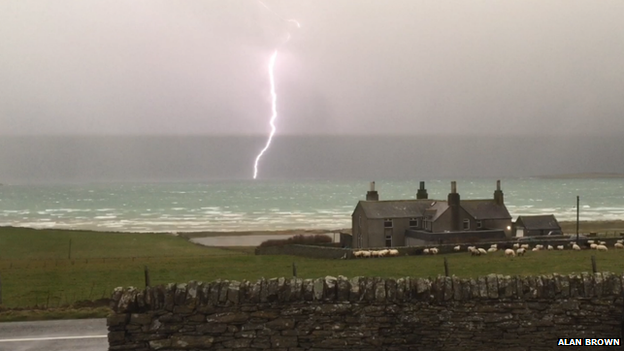
Looking west from Stronsay High School in Orkney as lightning strikes
About 20 vehicles were stuck in icy conditions at Cairn O' Mount on the B974 Banchory to Fettercairn road in Aberdeenshire for 90 minutes before being moved on at 09:30.
The Vatersay and Eriskay causeways on the Western Isles were closed after being overtopped by waves.

Check out the latest travel news for Scotland

Around the country
For the latest on the roads visit the BBC's travel news page and keep up to date with incidents and roadworks on the motorways here.
Around the country you can check for updates from:
Alternatively, for regular travel bulletins listen live to BBC Radio Scotland and follow @BBCTravelScot, external.
In times of severe disruption you can also follow the BBC Scotland severe weather Twitter list, external of key sources.
Below are a number of other traffic information sources.
Other links

Deputy First Minister John Swinney told BBC Radio Scotland early on Wednesday morning: "It is important to keep this in context. It's not a surprise that Scotland faces severe winter weather, we face it to a greater or lesser extent every year. This morning we're wrestling with a number of different issues.
"We're wrestling with very high wind speeds, which are not that uncommon in the Western Isles for example, but they are still severe and need to be prepared for.
"We're wrestling with the possibility of coastal flooding because of the sea surges and strength of waves that are likely to come, and in other parts of the country we're wrestling with the issues of snow on the A9 and M74 and we also will, I suspect, be dealing with a bit of flooding on some of the river systems in Scotland but mainly on agricultural land.
Mr Swinney added: "I think it's important to remember that this is weather which is characteristic of winter weather in Scotland and what's important is that we take the necessary steps to prepare for it."
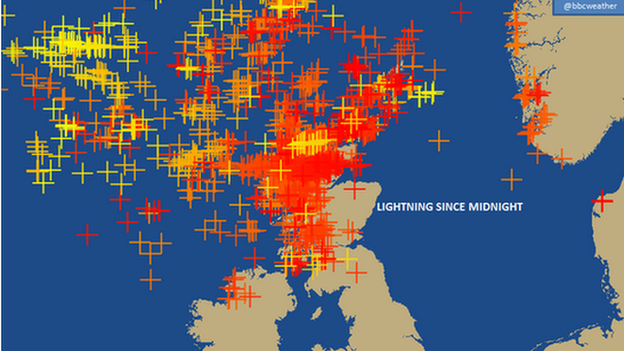
The location of lightning strikes over Scotland since midnight with thousands of homes affected by power cuts
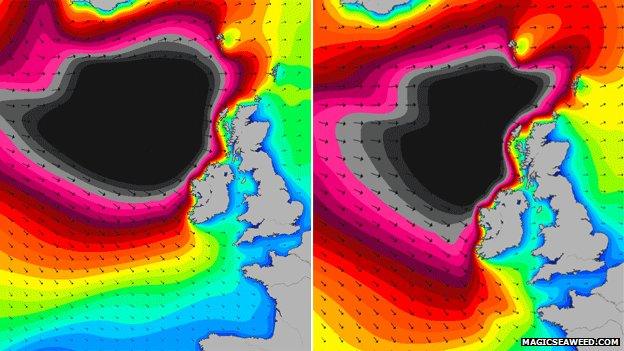
A chart showing the movement of swells of up to 40ft from 06:00 to 15:00 on Wednesday
What is a weather bomb? BBC weather's Peter Gibbs explains

Are you affected by the severe weather in Scotland? You can send us your pictures or videos to yourpics@bbc.co.uk and your experiences to haveyoursay@bbc.co.uk, external
Alternatively, you can text them to 61124 (UK) or +44 7624 800 100 (International). If you have a large file you can upload here, external.
Read our terms and conditions, external.
- Published10 December 2014
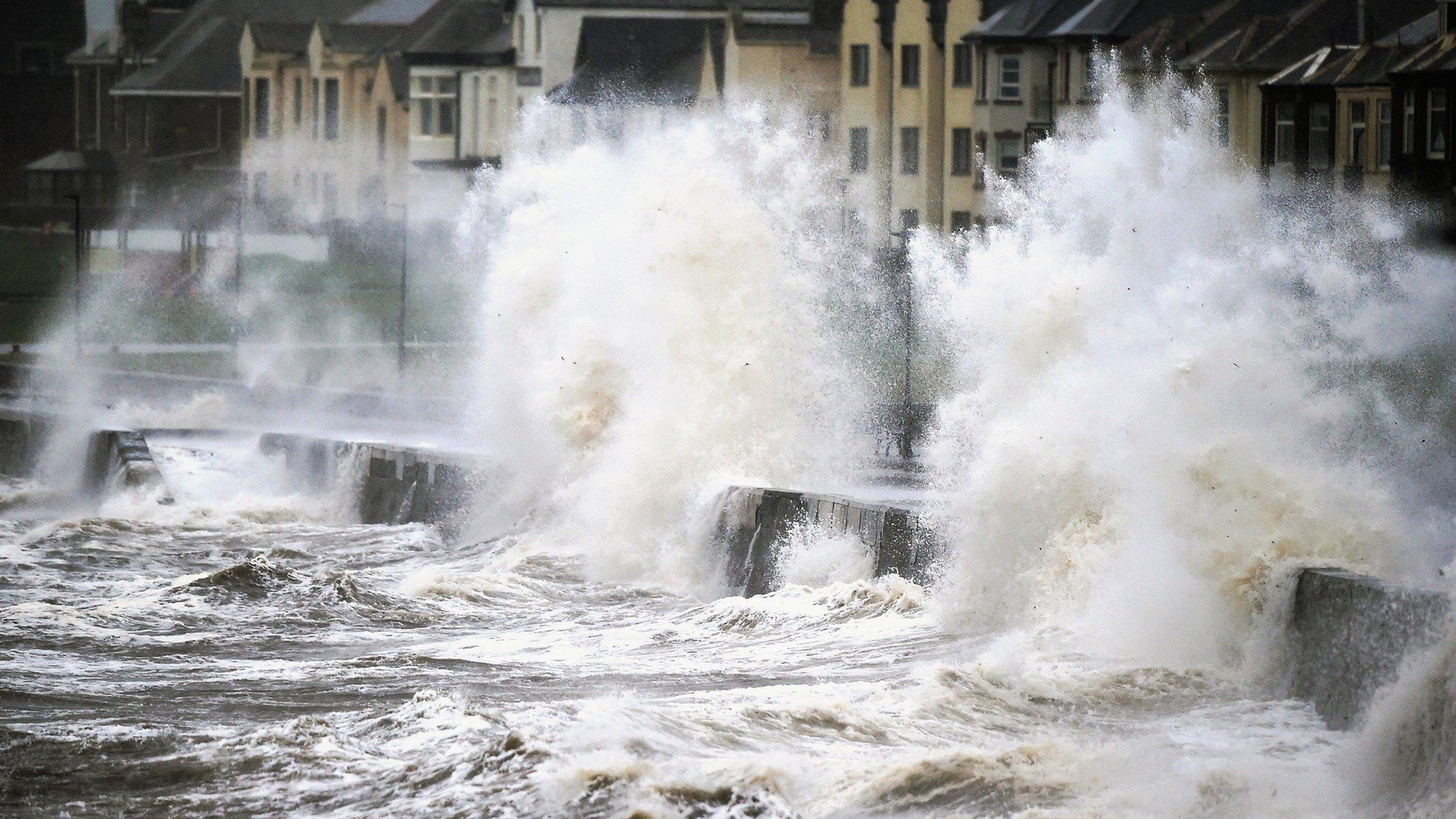
- Published10 December 2014
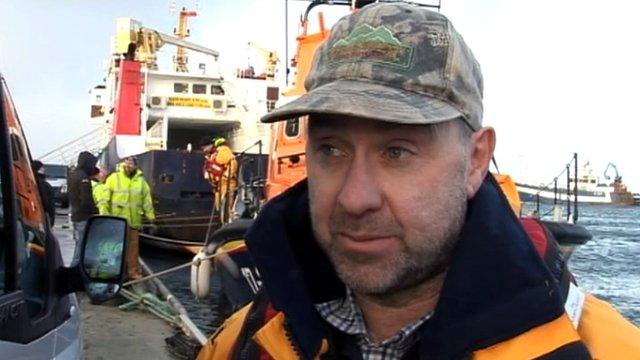
- Published10 December 2014
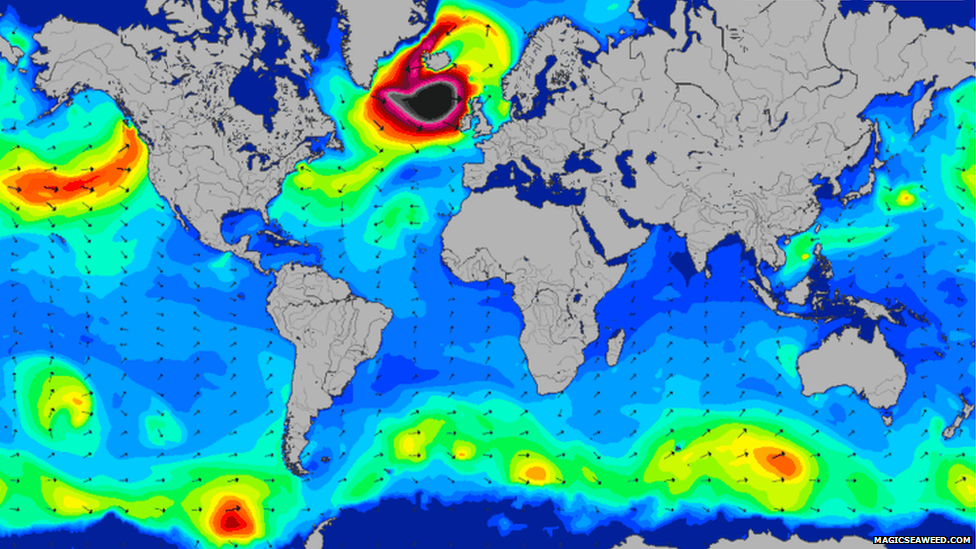
- Published10 December 2014
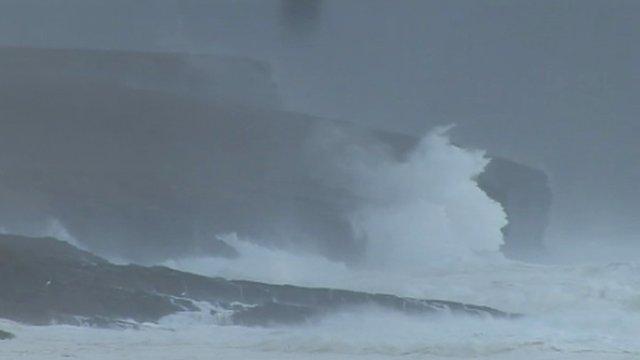
- Published10 December 2014
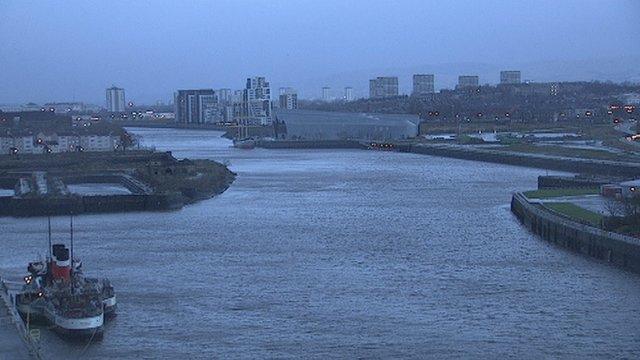
- Published9 December 2014
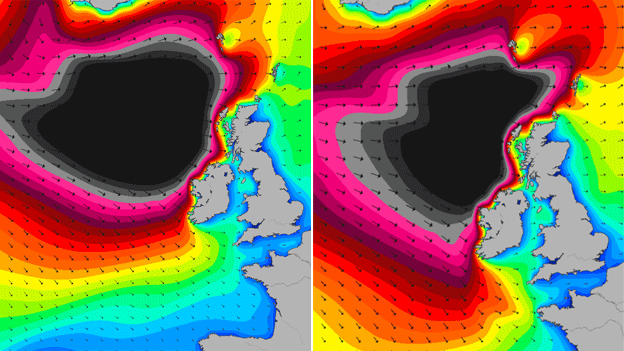
- Published8 December 2014
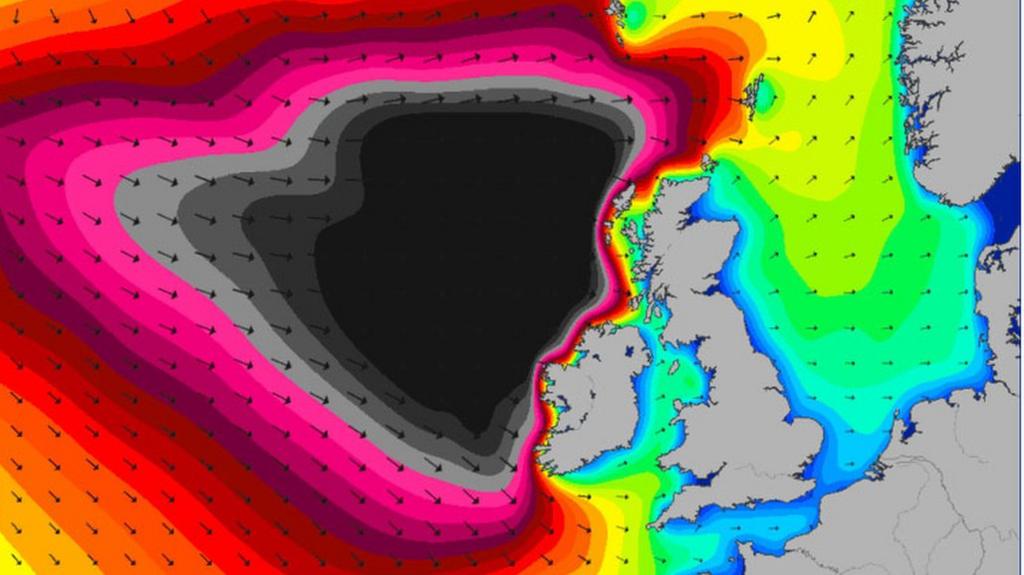
- Published8 December 2014
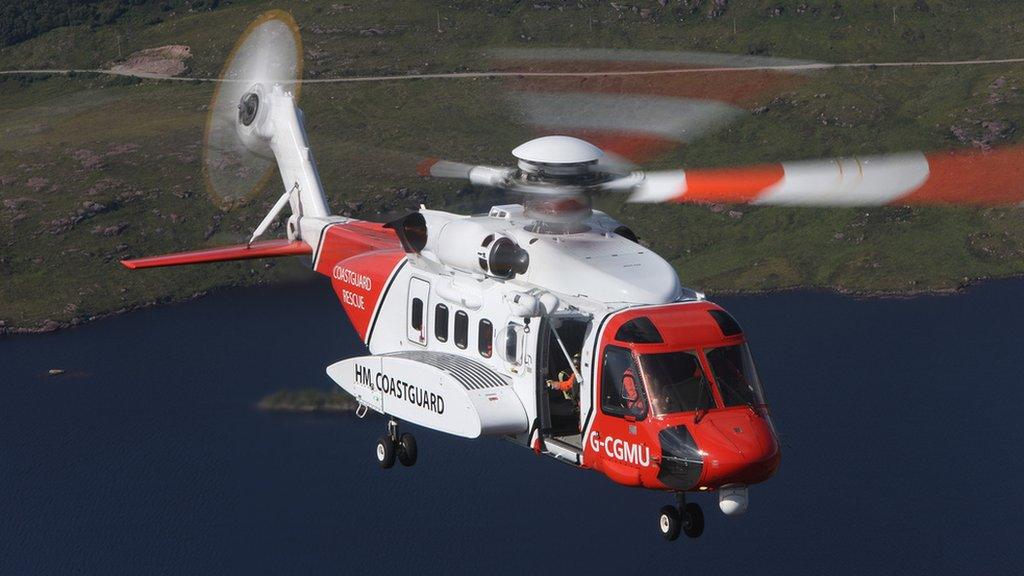
- Published6 February 2013
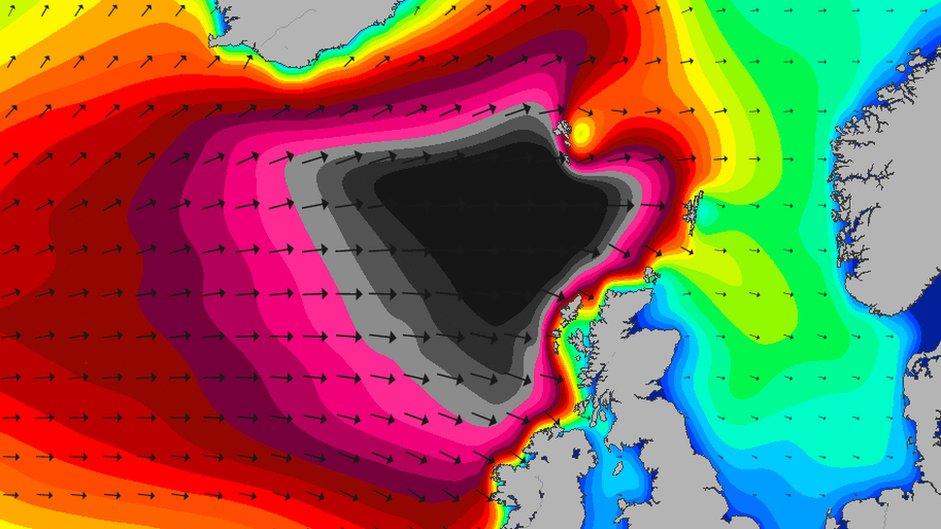
- Published6 December 2013
